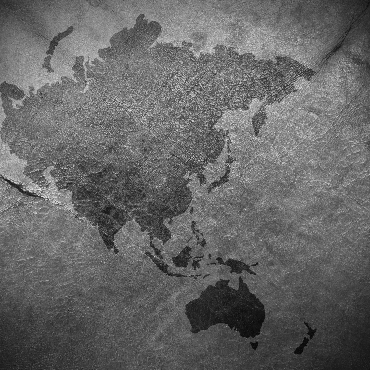CHINA'S INFLUENCE ON THE ASCENT IN THE SOUTH PACIFIC
The months-long political drama in the Solomon Islands has intensified since Honiara inked a port access agreement and economic deals with Beijing back in April. Four months on, Chinese tech firm Huawei announced the construction of 161 telecommunications towers throughout the Solomon Islands. The deal comes as a significant blow to Australia's strategic interests, as leaders in Canberra have tried to box China out of Honiara's telecommunications infrastructure since 2018. That same month, the Solomon Islands denied requested port access from U.S. and United Kingdom coast guard and naval vessels, and promptly issued a blanket ban on port access for foreign ships.
Of particular importance is Solomon Islands President Manasseh Sogavare's gambit to delay national elections and potentially extend his term. The possibility of rising authoritarianism in the Solomons challenges Washington's vision for a Free and Open Indo-Pacific, but Sogavare appears to be driving wedges between America's democratic partners in the region as well. Shortly after announcing the port access ban, he granted waivers to Australia and New Zealand, which could complicate Washington's cooperation with its allies in key domains like the Quad, AUKUS, and the Five Eyes partnership. (The Diplomat, September 8, 2022)
MANILA WEIGHS FUTURE STEPS IN THE SHADOW OF TAIWAN
Days after House Speaker Nancy Pelosi's trip to Taiwan, U.S. Secretary of State Antony Blinken visited the Philippines and underscored America's commitment to defend Manila if attacked in the South China Sea. The commitment took on new meaning as China's military drills within Taiwan's internal waters also intruded into the Philippines' Exclusive Economic Zone (EEZ). The PLA's signal reflected the regional implications of Taiwan's security, and the connectedness of U.S. treaty allies like Japan and the Philippines to Taiwan's fate. This context has raised questions not only of America's commitments to its partners, but also regarding the willingness of regional partners like the Philippines to be involved in a Taiwan scenario.
In early September, Jose Manuel Romualdez, the Philippine ambassador to the United States, addressed these questions directly when he said Manila would allow the U.S. to use its bases in the Philippines "if it is important for us, for our security." The ambassador's remarks may fall short of official policy, but related developments – ongoing discussions between Washington and Manila to expand the number of bases the U.S. can utilize, as well as President Ferdinand Marcos, Jr.'s desire to offset his predecessor's diplomatic tilt toward Beijing – suggest a growing sensitivity in the Philippines to cross-strait stability. (International Business Times, September 7, 2022)
SUFFOCATING DEBT IMPERILS LAOS' POLITICAL FUTURE
Laos, one of the most impoverished nations in Southeast Asia, is on the cusp of becoming a vassal state of Beijing. By some estimates, Vientiane's total indebtedness to the People's Republic of China (PRC) – not just official government debt, but opaque debt often associated with Belt and Road Initiative (BRI) projects – is approaching 120% of GDP. Inflation is also rocking Laos, with gasoline prices up 107% over the past year. In the face of these difficulties, Laos' foreign exchange reserves are being strained, possibly to a breaking point. World Bank officials are openly characterizing Vientiane’s situation as "very challenging," and have warned about the possibility of mass poverty. As the likelihood of a sovereign debt default grows, questions are rising about the PRC's potential response. Laos' debt exposure to the PRC as a percentage of total debt surpasses that of every other country in the world at approximately 65% of GDP. (Nikkei Asia, September 6, 2022)
CANBERRA, PORT MORESBY RESPOND TO BEIJING'S ENCROACHMENT
Beijing's diplomatic gains in the South Pacific have shocked politicians in Washington and thrown Pacific Island nations into the geopolitical spotlight for the first time in eight decades. In the wake of China's port access deal with the Solomon Islands and its military projects at Kiribati, regional powers long accustomed to unrivaled influence are adjusting to the new, contested reality. After news of the Beijing-Honiara deal broke, Australian Prime Minister Scott Morrison framed the possibility of a PLA military base in the Solomon Islands as a "red line" for Canberra. Now, it seems, the larger states in Oceania are moving beyond rhetoric. In late August, Papua New Guinea's foreign minister, Justin Tkatchenko, floated the possibility of a security deal with Australia. This possibility coincides with joint U.S.-Australian attempts to reinforce the Papuan armed forces, including a $175 million upgrade for the island's Lombrum Naval Base. Papua New Guinea and Australia have been longstanding strategic partners, but have never formalized their cooperation with a treaty. (ABC News, August 30, 2022)
Want these sent to your inbox?
Subscribe
